Saint of the Day Online - Saint Anthony of Padua
Saint of the Day for Tuesday, June 13, 2017
13-06-2017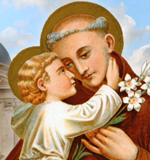
Saint Name: Saint Anthony of Padua
Place: Lisbon, Portugal
Birth: 1195
Death: 1231 (35 Years)
Feast: 13 June
Saint Anthony of Padua was born on 1195 in Lisbon, Portugal. He was a Portuguese Catholic priest and friar of the Franciscan Order. He was born and raised by a wealthy family in Lisbon, Portugal, and died in Padua, Italy. Noted by his contemporaries for his powerful preaching, expert knowledge of scripture, and undying love and devotion to the poor and the sick, he was one of the most quickly canonized saints in church history. He was proclaimed a Doctor of the Church on 16 January 1946. He is also the patron saint of lost things.
Saint Anthony was born Fernando Martins in Lisbon, Portugal. He was born into a wealthy family and by the age of fifteen asked to be sent to the Abbey of Santa Cruz in Coimbra, the then capital of Portugal. During his time in the Abbey, he learned theology and Latin.
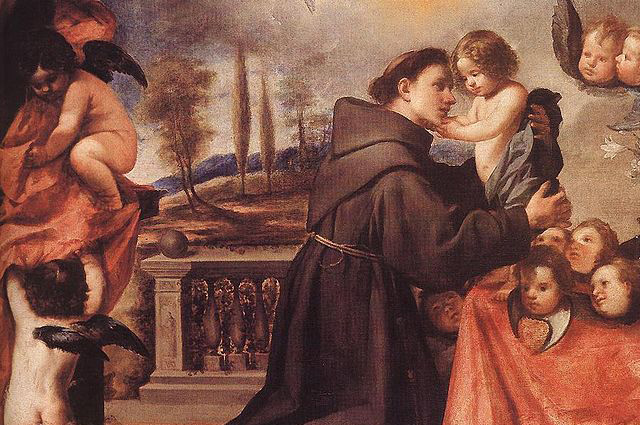
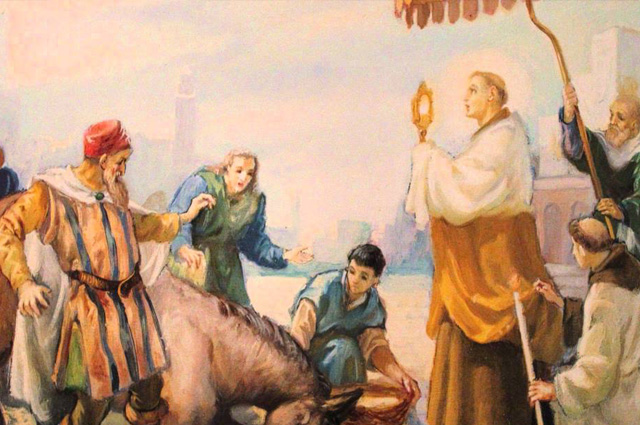
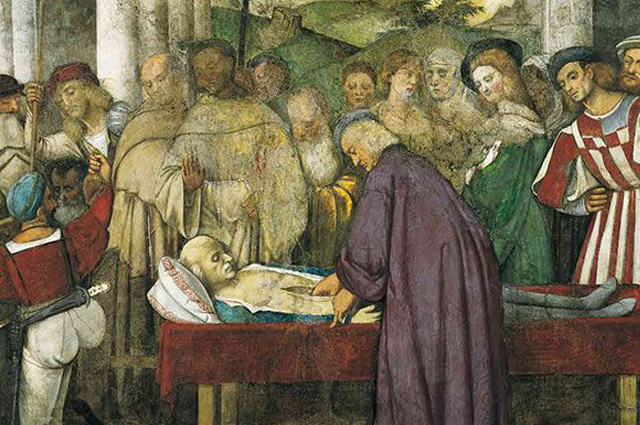
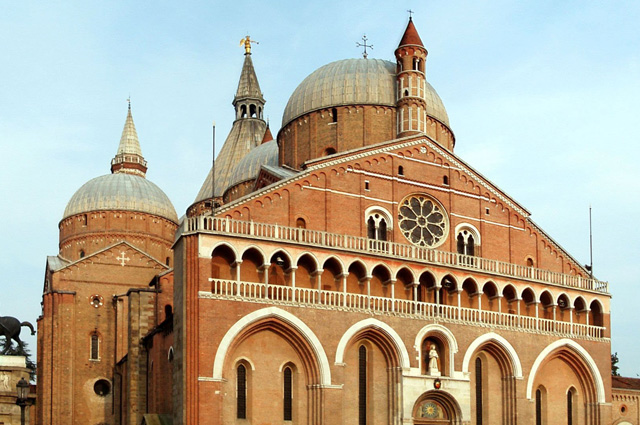
Following his ordination to the priesthood, he was named guest master and was responsible for the abbey's hospitality. When Franciscan friars settled a small hermitage outside Coimbra dedicated to Saint Anthony of Egypt, Fernando felt a longing to join them.
Fernando eventually received permission to leave the Abbey so he could join the new Franciscan Order. When he was admitted, he changed his name to Anthony.
Anthony then traveled to Morocco to spread God's truth, but became extremely sick and was returned to Portugal to recover. The return voyage was blown off-course and the party arrived in Sicily, from which they traveled to Tuscany. Anthony was assigned to the hermitage of San Paolo after local friars considered his health. As he recovered, Anthony spent his time praying and studying.
Anthony occasionally taught at the universities of Montpellier and Toulouse in southern France, but he performed best in the role of a preacher.
So simple and resounding was his teaching of the Catholic Faith, most unlettered and the innocent could understand his messages. It is for this reason he was declared a Doctor of the Church by Pope Pius XII in 1946.
He was only 36-years-old when he died and was canonized less than one year afterward by Pope Gregory IX. Upon exhumation some 336 years after his death, his body was found to be corrupted, yet his tongue was totally incorrupt, so perfect were the teachings that had been formed upon it.